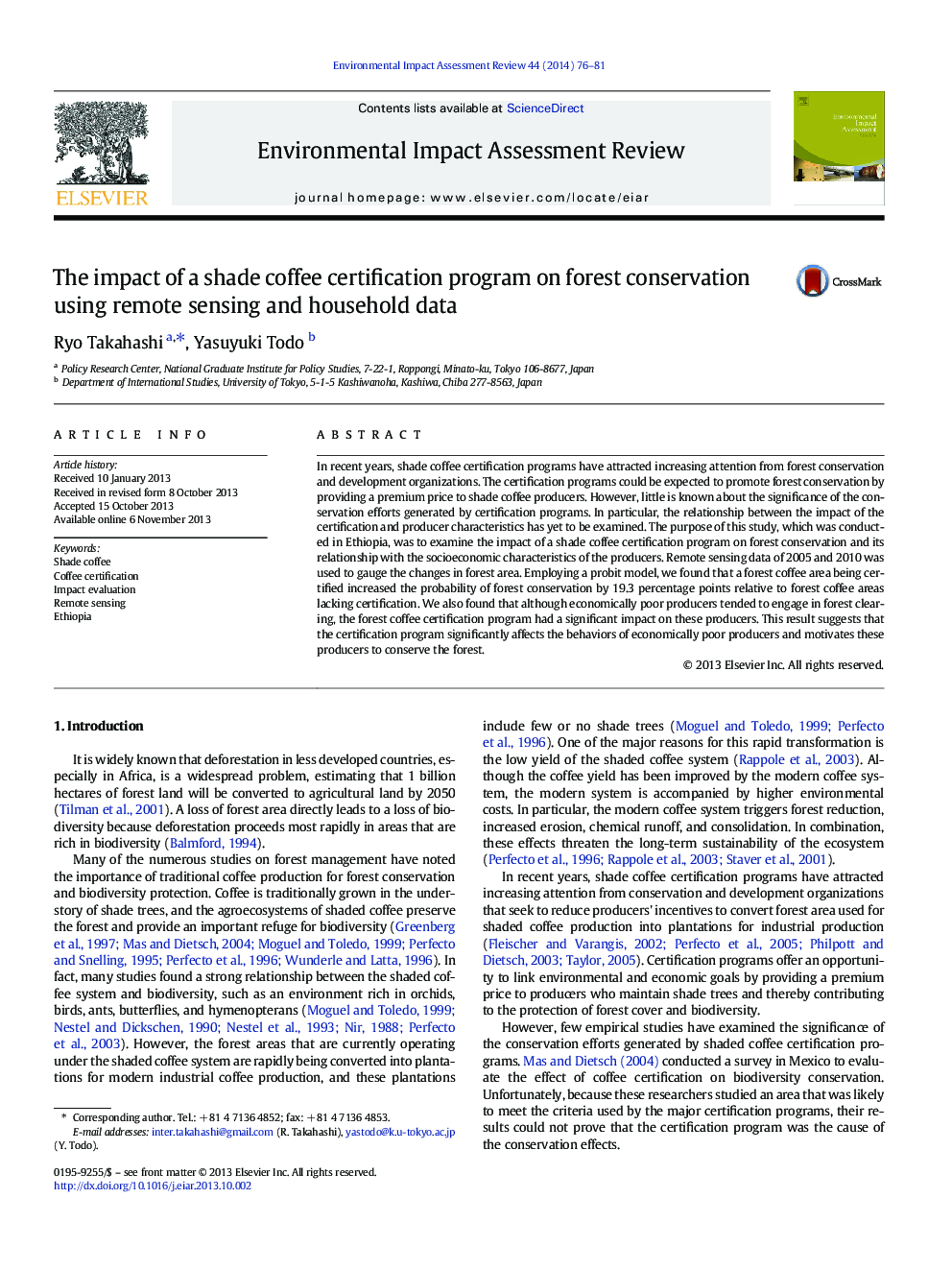| Article ID | Journal | Published Year | Pages | File Type |
|---|---|---|---|---|
| 1052780 | Environmental Impact Assessment Review | 2014 | 6 Pages |
•We employed the probit mode to evaluate the impact of the shade coffee certification on forest conservation in Ethiopia.•We estimated how the impact of the certification varied among producers with different characteristics.•The certification increased the probability of conserving forest by 19.3 percentage points.•Certification program motivated the economically poor producers to conserve the forest.
In recent years, shade coffee certification programs have attracted increasing attention from forest conservation and development organizations. The certification programs could be expected to promote forest conservation by providing a premium price to shade coffee producers. However, little is known about the significance of the conservation efforts generated by certification programs. In particular, the relationship between the impact of the certification and producer characteristics has yet to be examined. The purpose of this study, which was conducted in Ethiopia, was to examine the impact of a shade coffee certification program on forest conservation and its relationship with the socioeconomic characteristics of the producers. Remote sensing data of 2005 and 2010 was used to gauge the changes in forest area. Employing a probit model, we found that a forest coffee area being certified increased the probability of forest conservation by 19.3 percentage points relative to forest coffee areas lacking certification. We also found that although economically poor producers tended to engage in forest clearing, the forest coffee certification program had a significant impact on these producers. This result suggests that the certification program significantly affects the behaviors of economically poor producers and motivates these producers to conserve the forest.
